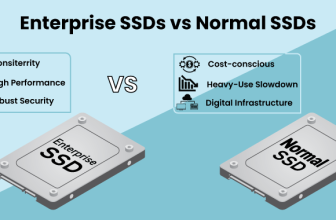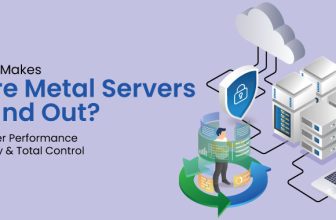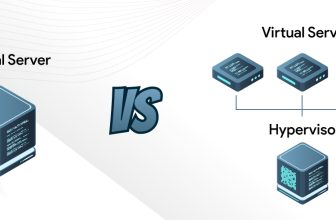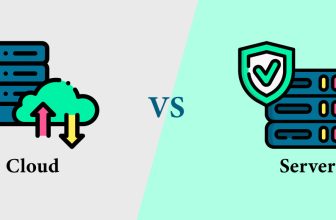How Much Do Servers Cost to Run?
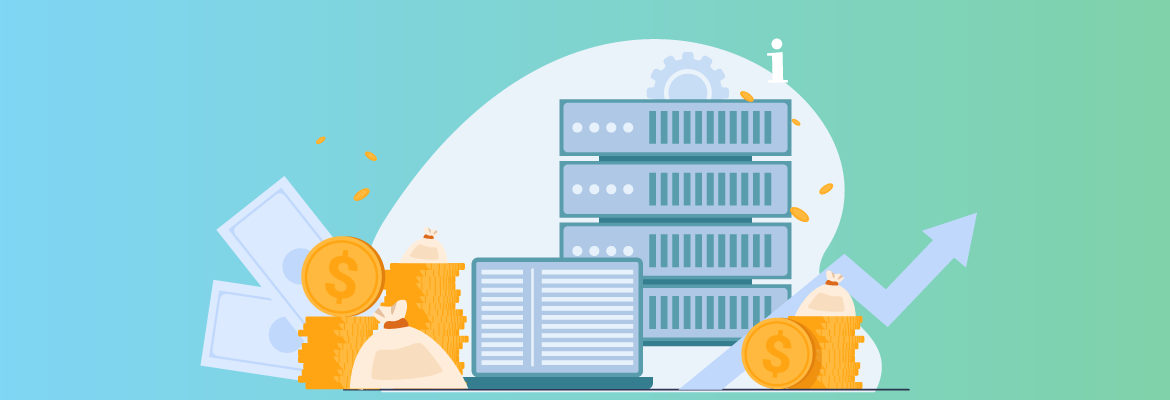
Introduction
As servers play a crucial role in every IT business, it’s essential to set up a suitable server to run various business applications with greater uptime and reliability. The server becomes a control centre for your business, and choosing the right server will help you achieve success by fulfilling your daily needs effectively.
Server Types
Different types of servers are available in the market, and choose one of the best suits your business needs.
There Are Three Main Types Of Server
- Tower Server
The structure of a tower server is a vertically standing box, similar to a traditional PC. Sometimes, tower servers can also be called pedestal servers. A tower server can be installed on the floor or in the cabinet as it has free-standing support. The average costs of a tower server ranging between 590$ to 4100$. - Rack Server
Rack servers are the flat type that would deploy in a cabinet or rack space. They occupy common places in the data centre. The costs of a rack server would be 4700$ to 11000$ on averagez - Blade Server
Blade servers look like a rack or large tower server, but it features several servers in one chassis. Blades can support extensive storage and provide high-end performance. The server costs would be 40000$ to 130,000$.
Choosing A Server Model And Specification
Several factors need to be considered while selecting a suitable server for your business.
Location And Environment
- Server installation
You will have to ask yourself where you want to install the server at your company. It would be best to purchase or rent a rack server if you have a server cabinet. You go for a tower server without a server cabinet. - Maintain a server room with air conditioning
Servers have complex hardware components that integrated fans can cool down. But, server room temperature should maintain below 25 to 30 degrees Celsius to run the functions smoothly. If you’re having multiple servers in a server cabinet, the server room should need an air conditioning system to overcome overheating. In case of larger rooms or open offices with consistent airflow, don’t need air conditioning. - Ensure that the server be secure
The server should locate a secure server cabinet or safe location to prevent your business-critical data from hacking.
Server Size And Capacity
- CPU or RAM
Before choosing a particular server, you need to have a clear vision of how much RAM or CPU is required to run a database or other applications. More RAM capacity is needed for servers that have virtualization software, e-mail servers, and database applications. - Number of users
The size of a server and the quantity and type of software licenses will decide based on the server’s user count.
Renting Vs Colocating Vs Buying A New Server
When deploying your business server, three different options are available such as
- Rent a server for fixed prices from server providers.
- Buy a server and deploy it in your company.
- Colocate a server
Each method has its pros and cons. We will guide you to choose a server that suits your business.
Renting A Server
Advantages
- Server rental provides benefits like cooling, hardware, power, security, and 24*7 support at monthly fixed prices.
- You can migrate to a new server at any time to access the latest hardware option.
- The hardware replacement costs are not included, which means that service providers will quickly replace the failed hardware components.
- 24*7 customer support is available to clear server related issues.
- It has reduced maintenance costs for hardware.
- Provides redundant power, security, and networking services.
Disadvantages
- It doesn’t allow access to physical data. You would have to copy the data from the server to the local storage option when you want to shut down your business.
- If businesses want to use the same hardware for years, purchasing hardware is cheaper than server rental.
Renting a small business server average cost is $100 to $200, and monthly maintenance costs would have included $40 to $295 while upfront costs are zero.
Buying A New Server
Advantages
- Purchasing a server requires high up-front costs, and you can use the hardware until it is obsolete.
- Provides access to the servers for data storage offline.
Disadvantages
- Needs additional expenses for networking, power, and cooling
- Security is not provided to protect your data
- No redundancy for power and networking
- Spend replacement and repair costs of hardware
Average upfront costs for a new server included $1537 to $3893, and maintenance costs are $30 to $60 monthly.
Colocating A Server
Advantages
- Provides redundant network and power
- Your server is secured for stored data and monitored 24*7
- It is also protected from fire suppression precisely
- 24*7 remote support
Disadvantages
- Up-front costs of hardware
- Replace the hardware in case of failure occurrence
Initial average costs for collocating a server are $1537 to $3893, whereas maintenance costs are $79 monthly.
Additional Cost Considerations
In addition to the above costs, every business should consider other costs, including:
The Initial Setup Cost (on average)
When trying to find out ‘how much servers cost for a business’, you have to include setup cost.
It’s not easy to handle the setting up of a server by business owners alone. So, the best option is to hire professionals, who charge typically between $100 and $150. The setup costs would vary based on the requirements like an advanced regular backup system for large projects, setting up an email host, data recovery, etc.
Finding the right team is the key solution to set up an affordable and successful server.
Maintenance Costs (On Average)
The server has to be appropriately maintained for ensuring continuous business workflows and experienced and certified professionals needed for server maintenance, including resolving the troubleshooting issues. If you’ve taken a server for rent or co-locate a server, you can depend on 24*7 customer support; otherwise, you need to hire a pro to maintain a server.
The average cost of maintenance would have relied on the business type and requirements.
Conclusion
As every business has its unique requirements, we couldn’t figure out the sum costs for a server to run the business. You better approach the professionals who will assist you in finding out the right server that meets your needs and the right fit for your budget while providing the right features.



